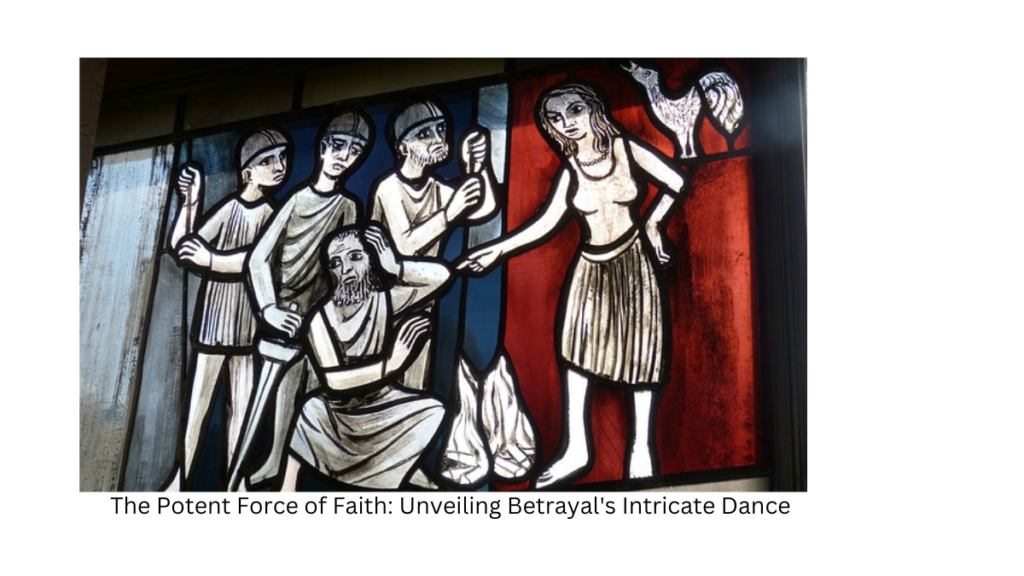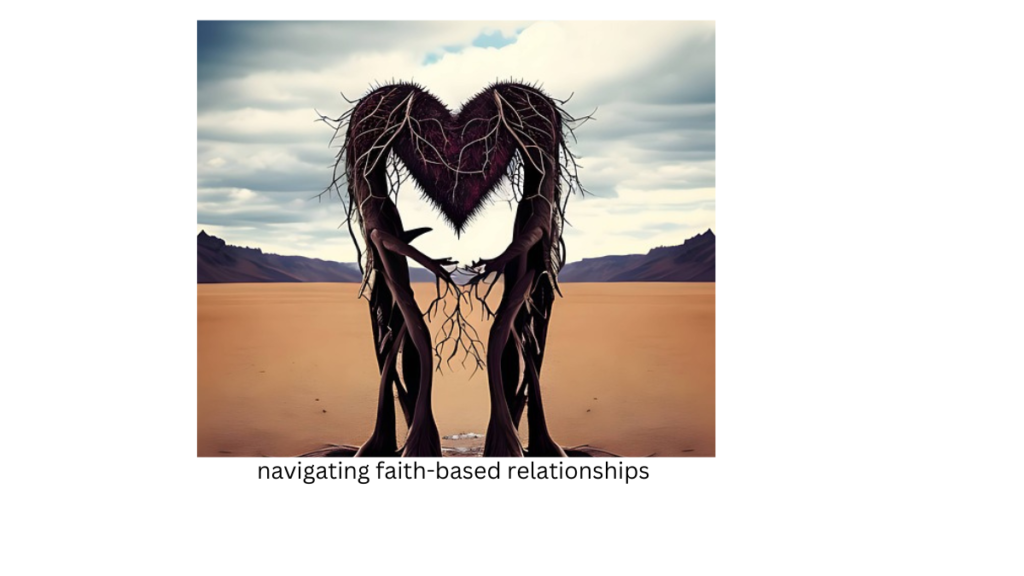Introduction

Faith, an age-old concept that transcends cultures and religions, has long been hailed as a powerful force guiding individuals through life’s trials and tribulations. Yet, within the realms of unwavering belief lies a complex web of human emotions and vulnerabilities, often leading to the heart-wrenching experience of betrayal. In this article, we explore the compelling interplay between faith and betrayal, seeking to understand how the very essence of belief can sometimes pave the way for unforeseen acts of deception and disloyalty.
How does the article contribute to our understanding of the complexities involved in navigating faith-based relationships and the potential risks of betrayal?

- The Strength of Faith
Faith is an intrinsic part of the human experience, serving as an anchor during turbulent times. It empowers individuals with hope, resilience, and the courage to face challenges head-on. By fostering a profound connection to something larger than oneself, faith offers comfort and purpose, nurturing a sense of belonging within a community of like-minded believers.
- Vulnerability and Betrayal
Ironically, the very power that faith provides can also leave individuals vulnerable to betrayal. As trust and loyalty intertwine with belief, the repercussions of betrayal can be particularly profound, shattering the foundations of one’s worldview and causing emotional turmoil.
- The Complex Dance
Betrayal within faith circles can manifest in various forms. It might involve a spiritual leader taking advantage of followers’ trust, or a friend or loved one betraying sacred confidences. Moreover, internal conflicts within religious institutions or communities can lead to disillusionment and feelings of betrayal among their members.
- Coping with Betrayal
Dealing with betrayal within the context of faith can be deeply challenging. Some individuals may experience a crisis of faith, grappling with doubts and questioning the authenticity of their beliefs. Others may find solace in the collective support of their community, seeking healing through shared experiences and collective understanding.
- Moving Towards Forgiveness and Healing
While betrayal may initially seem insurmountable, the path to healing and forgiveness is attainable. Recognizing that no human, including oneself, is perfect can help navigate the tumultuous journey of restoring faith and trust. Seeking guidance from spiritual mentors, engaging in self-reflection, and embracing empathy can be instrumental in the healing process.
What understanding should be kept in maintaining trust based relationships, so that betrayal can be avoided?

Maintaining trust-based relationships requires a combination of open communication, mutual respect, and commitment. To avoid betrayal, the following key understandings should be kept in mind:
- Transparency and Honesty: Foster an environment of openness where individuals feel comfortable expressing their thoughts and feelings truthfully. Transparent communication helps build trust and reduces the likelihood of hidden agendas leading to betrayal.
- Consistency and Reliability: Consistently follow through on promises and commitments. Being reliable and accountable builds confidence in the relationship and reduces the chances of betrayal.
- Empathy and Understanding: Cultivate empathy and understanding towards others’ emotions and perspectives. By valuing each other’s feelings, individuals are less likely to engage in actions that might cause harm or betrayal.
- Boundaries and Respect: Establish clear boundaries and respect each other’s personal space and limitations. Respecting boundaries prevents unintentional betrayals and promotes a sense of security within the relationship.
- Support and Empowerment: Be supportive of each other’s goals and aspirations, encouraging personal growth and empowerment. A supportive environment strengthens the bond and diminishes the desire for betrayal.
- Conflict Resolution: Develop effective conflict resolution skills to address disagreements and issues promptly and constructively. Avoiding unresolved conflicts minimizes opportunities for resentment and betrayal to take root.
- Forgiveness and Second Chances: Understand that people can make mistakes and be willing to forgive and offer second chances when appropriate. Forgiveness promotes healing and reinforces the value of the relationship.
- Assessing Trustworthiness: Pay attention to actions and consistency over time to assess someone’s trustworthiness. If trust has been previously broken, rebuilding it may take time and commitment from both parties.
- Balanced Expectations: Avoid placing unrealistic expectations on others, as it can lead to disappointment and strained relationships. Embrace imperfections and recognize that no one is infallible.
- Healthy Communication: Foster a culture of open and non-judgmental communication, where both parties feel safe expressing their concerns and fears. Effective communication helps prevent misunderstandings and potential triggers for betrayal.
By incorporating these understandings into trust-based relationships, individuals can create a solid foundation that minimizes the risk of betrayal while fostering deeper connections and emotional security.
Conclusion
The potent force of faith offers a unique lens through which to explore the complexities of betrayal. As believers confront the reality of human fallibility, they may discover new dimensions of strength and resilience in rebuilding their faith. Acknowledging that the dance between faith and betrayal is an intrinsic part of the human experience can pave the way for greater compassion, empathy, and understanding in both spiritual and secular spheres.





